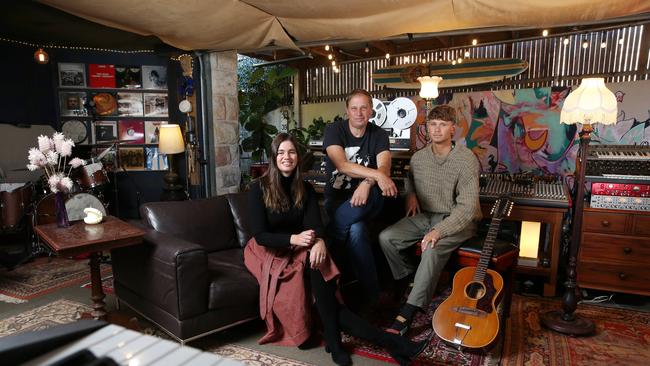
In Australia, we have embraced the reverse strategy and decided to hit our family businesses hard.
And alarmingly, the vast majority of Australia’s 2.5 million family enterprises – which account for some five million workers or around 40 per cent of the private sector work force – have no idea they are about to be savaged by the Albanese government.
Today, I detail some of the globally unprecedented blows they face starting next month. They will be required by legislation to share management control of their business with newly appointed union delegates.
Forcing on family enterprises a decision-making process that is entirely incompatible with the staff trust that causes those businesses to succeed will create incalculable damage to Australian productivity and standard of living. But it will substantially increase the current token union membership in family enterprises.
Large enterprises can handle Albanese’s legislated management formula because usually they have the market power and can pass on the cost.
Most family enterprises don’t have that market power and gain their competitiveness by their trusting relationship with their workforce and the efficiency that delivers.

Let me explain how the family business will be hit.
• Unions have the power to appoint a delegate to any business employing at least one person. It is not clear how the various unions will share that right, but the Fair Work Commission indicates one union delegate per fifty employees is appropriate.
• The tasks and powers of the union delegate(s) are wide-ranging. They must be consulted on all major workplace changes including rosters and any process or procedure in which employees are entitled to be represented, including resolution of grievances or disputes, performance management and disciplinary processes. The definition of whom union delegates can contact in an enterprise effectively means everyone.
• Enterprises employing 15 or more people must be given time to attend the Trades Hall for “training”. Those with under 15 employees can do their training online. Transport enterprises are excluded because they have their own set of rules designed to push up costs by around 10 per cent by eliminating efficient and safe independent family owned truckies.
• It will be dangerous to retrench or sack a union delegate, and employers must give them access to space to do their work and to use the workplace communication system. The union delegates’ rights to share information among delegates in rival enterprises will be the subject of much controversy.
• Almost certainly, union delegates will be instructed by Trades Hall to insist that employers obey the new laws on casual employment. As I set out on April 23, the new law defines casual employment in such a complex way that most businesses currently employing casuals will be acting illegally if they continue with the current arrangement after August 26, 2024.

They will need to be punished. Businesses that obey the law and remove casuals will cause great anger among casual workers who are currently getting 25 per cent premium for their casual work which they use to pay rent and mortgages.
Delegates to family enterprises may be instructed by their union bosses to wait until after the election before “dobbing in” their employer’s “illegal” casual hiring.
The Albanese government legislative aim is to convert casuals to part or full-time employees so they are much easier to recruit as union members. But, not only do most casuals like the current “illegal” flexibility and cash rewards, casuals in many areas lift business productivity and competitiveness.
• Enterprise agreements and arrangements will be gradually replaced by industry awards that incorporate the most expensive provisions that unions in a particular enterprise were able to negotiate with companies that had no choice but to give in.
This eliminates any competitive advantage and its impact on Australian family business productivity is incalculable.
I meet many smaller family enterprises, and the horror and disbelief that I encounter when I personally explain what is about to happen to the employee trust that drives their enterprise is heart-wrenching.
I will never forget the emotion in one of the few family businesses to survive after the closure of the automotive making industry.
The person who drove the parts business into new global areas stood up and said to his son with some with emotion: “We must sell”. Unfortunately, it was too late.
The above rules are merely snippets from the 700 pages of industrial relations legislation, which from August 26 will form the basis of running businesses in Australia.
Along with government imposed rises in long-term energy costs and other government imposts, the legislation locks in higher than necessary inflation for longer, which impacts interest rates.

It is also significant that the vast majority of jobs that have been created over the last year or so have come from activities that were either government owned or relied on government income to operate. Health and education have been important.
Australia needs to restore balance, but the legislation is designed to push employment away from family businesses that do not rely on government income.





In the US, both political parties encourage aspiration and family business.